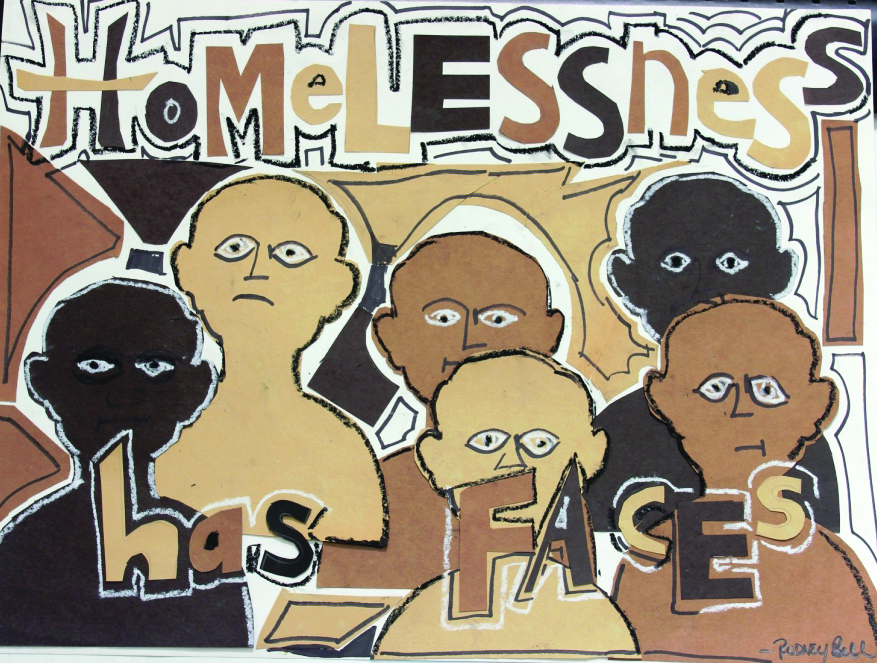
A few months ago, I lost my ID. I retraced my steps to the stores where I took it out when fishing for store cards and cash in my pouch. No luck—it wasn’t at any of them.
That meant I had to undergo the rigmarole of replacing my ID. At least I still had my Social Security card, knew where I kept my birth certificate and had access to the paperwork waiving the fee to unhoused California residents.
I only had to bring them to the Department of Motor Vehicles, take the requisite photo and wait for the DMV to mail it to the office where I write for a homeless newspaper. The replacement was the new Real ID
I would need if I were to board an airplane for a domestic flight or enter any federal government facility. It was also renewed for another five years, so I needn’t bother returning to the DMV—for now, at least.
Without an ID issued by a local, state or federal agency, unhoused people can’t access public benefits or other services. When a person loses their ID with no replacement, they virtually disappear from society.
It’s as if they don’t exist.
The New York University School of the Law’s Brennan Center found in a 2006 study that 11% of the U.S. population lack a state-issued ID. That works out to approximately 21 million people unable to prove who they say they are.
The Brennan Center also concluded that 7 percent of U.S. citizens carry no proof of citizenship, including birth certificates, passports or naturaliza- tion papers.
The people less likely to have any ID are seniors, minorities and people earning less than $35,000 per year. These are groups whose members are very likely to face homelessness. If one were to draw a Venn diagram, it would show much overlap between those groups.
The absence of ID can have the same impact as a natural disaster. If that last sentence sounds hyperbolic, I submit the case of Wendi Taylor of Houston, Texas. In the summer of 2017, Hurricane Harvey flooded Taylor’s trailer park. During the evacuation, she lost the bag containing her documents when the National Guard boat capsized.
Two years later, Taylor is still unable to take the first step toward establish- ing her identity.
“My ID has not been replaced yet,” she said. “I’m stuck in a catch-22 of needing a photo ID to get a Social Security card and needing a Social Security card to get a photo ID.”
Under Texas law, Taylor would have to produce a combination of docu- ments to get an ID. That includes her driver’s license or ID, her date of birth, the last four digits of her Social Securi- ty number and the audit number of her most recent state-issued ID.
Soon, it won’t be any easier anywhere else.
As of October 1, 2020, new barriers to establish identity could be created when the federal Real ID Act takes effect. An address must also be provided. And a post office box won’t satisfy that requirement, said Derrick Soo, a former construction contractor now living in Oakland, California.
Soo said that an applicant in Cal- ifornia must provide a utility bill to show proof of address.
“This is creating a huge issue for those living curbside,” he said.
Soo said he hopes he will be housed before he has to renew his ID. In
the meantime, it shows his current address as that of a now-defunct business across the street from his campsite. Until that business moved in 2016, it allowed him to use that address to receive mail and deliveries. It also added the benefit of protection from the authorities. A police officer tried to force Soo to break camp, but was thwarted when Soo showed him his ID.
“He had no choice but to allow me to set up my shelter on the property of the address on my ID,” he said. “No city official or police could do anything about me.”
The San Francisco encampment dwellers I interviewed for Stolen Belonging earlier this year weren’t as fortunate. Residents living in improvised structures lost their IDs, medications, and other possessions when city workers seized them during sweeps. To my knowledge, they weren’t recovered or replaced.
When I finally received my ID, I was relieved and grateful. With it, a multitude of things are again possible for me—first and foremost, just being.
This story originally appeared in Invisible People, a nonprofit dedicated to educating the public about homelessness through innovative storytelling, news, and advocacy. TJ Johnson is the Assistant Editor of Street Sheet, San Francisco’s street newspaper.
TJ Johnston is the Assistant Editor of Street Sheet, San Francisco’s street newspaper.
